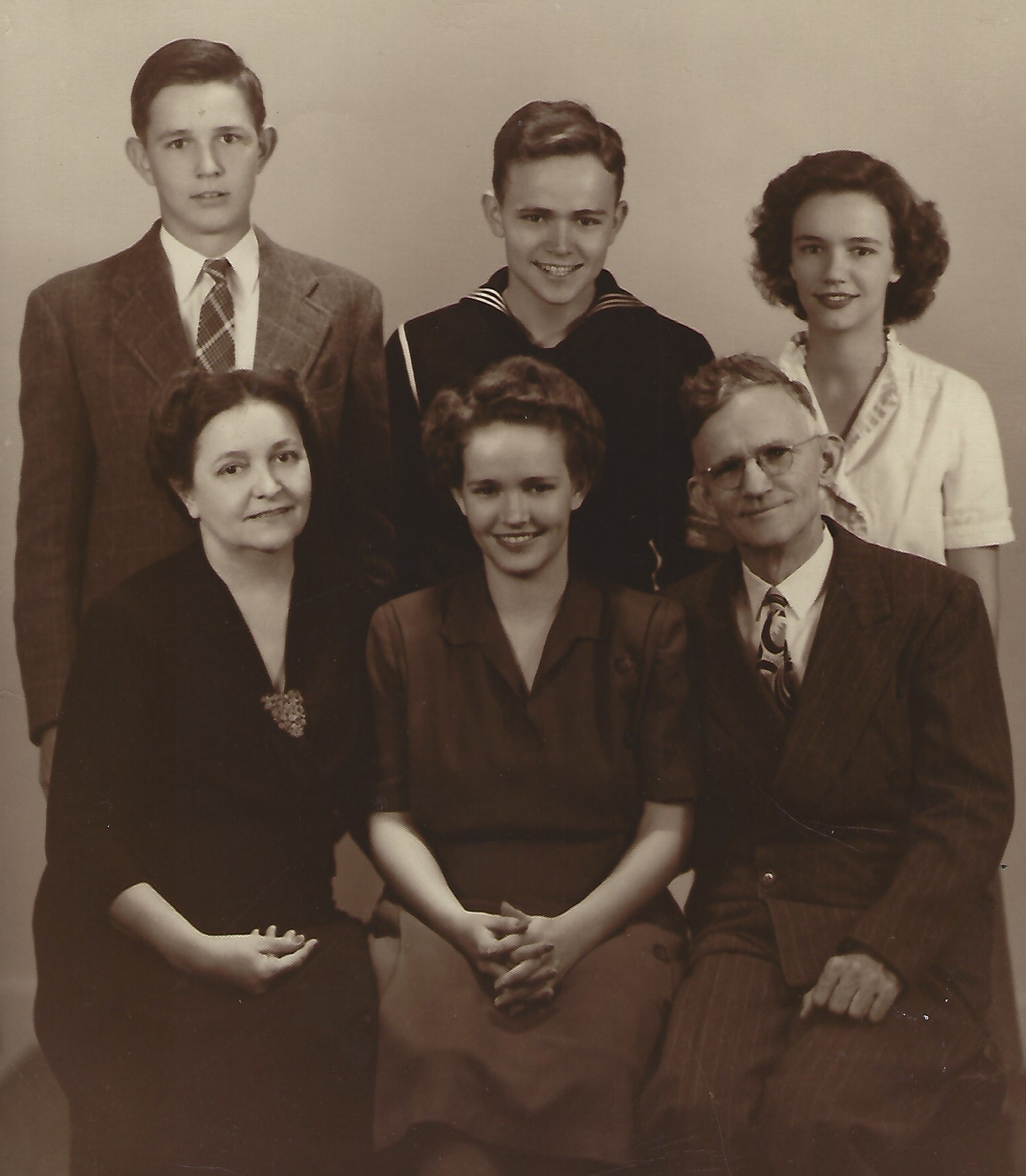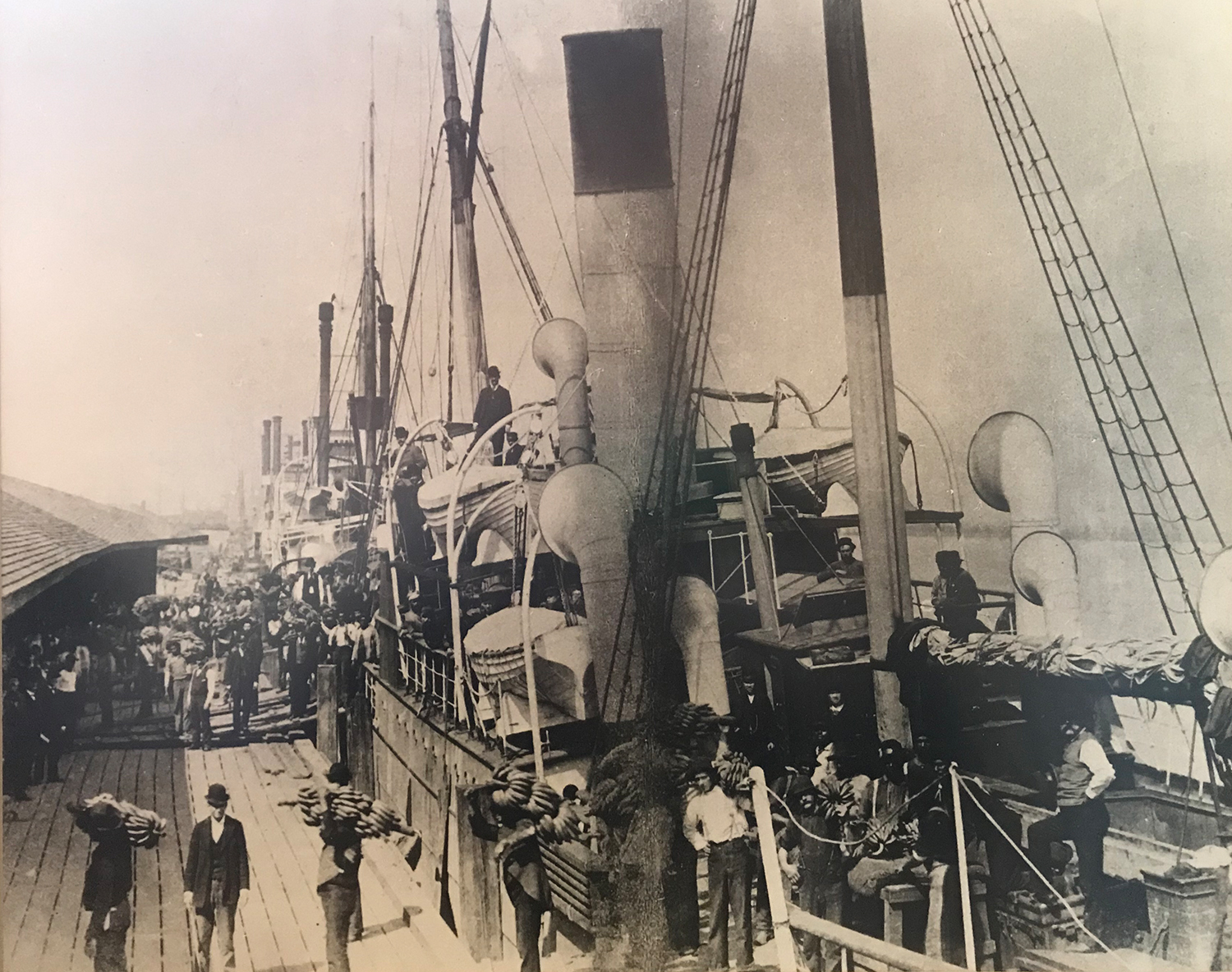
I am sitting with Tita Murray, who will turn 99 this month, and her daughter Lucy in a sunny house on Dog River on the first day of November. Tita is telling me about the banana docks in Mobile, where her husband was a stevedore, as well as his daddy before him. Lucy shows me a collection of badges worn by the dockworkers. Each is silver, with the company name, Murray, across the top, and underneath it, the worker’s role: beltman, feeder, carman, holdman, ripe carrier, passer, wharf cleaner. Workers were paid according to these badges, and in Tita’s day, in silver dollars. I have never heard of this, and I am thrilled.
Tita talks about her mother, too. “The funny thing about her,” she says, “she never made just one cake. I don’t know why. She made two cakes every time she made them. One was for somebody, but the other one … she just found somebody to give it to.” She mostly made “1, 2, 3, 4” cakes: 1 cup butter, 2 cups sugar, 3 eggs and 4 cups flour. Lucy loved helping her grandmother with the cakes so much she would “play sick” and skip two or even three days of school at Christmastime to cut fruit for the fruitcakes, given to every parishioner at Government Street Methodist Church as a holiday gift.
Since I began presenting on “The Story of Alabama in Fourteen Foods,” I have heard so many stories like these. In Montgomery, a woman told me about her grandparents arguing every year about how much whiskey to put in the Lane cake. Her grandfather would finally cave, only to tell his sons to sneak more whiskey in when his wife wasn’t looking. In Stockton, a woman told me about how she and her siblings carved their initials into sweet potatoes, so each could claim the right potato when it came out of the oven.
Every time I hear a new story, I think: “There is so much we are missing,” and, “We will never capture it all.” I’ve taken to pleading with audiences for help. “Every day a million stories go untold,” I tell them. “If each of you could just interview a family member or write an article for your local paper or keep a journal even, every little bit helps!”
But, why do I do this? The old world is disappearing, as it always has and always will. So what difference does it make whether we know the details? Why do we work so hard to capture our history? Why do we yearn to know our pasts so deeply? Why do I feel that electric charge every time Tita shares an old memory, like waking up every morning to her father grinding coffee by hand in a grinder mounted to the wall, then watching him raise the steaming cup to his face and, if it was too strong, saying, “That coffee would walk to Coden!”

While listening to Tita, the editor voice in my head keeps asking annoying questions like, “What do you want the focus of this to be? How are you going to frame it? What else do you need to ask?” I mostly silence it, so I can bask in the presence of someone so thoughtful and kind and warm, with nearly 100 years of living behind her. And as I drive away, under the green leaf canopy that covers the quiet streets of Dog River, I realize the interview wasn’t about one thing anyway. It was never about one thing.
It was about all the things. It was about 40-pound stalks of bananas hanging on Tita’s front porch. It was her two aunts “as different as daylight and dark.” It was the sad pause in the sentence about losing her son. It was drinking Kool-Aid for the first time in a New York hotel and watching her daughter go around and around in the revolving doors. It was moving to Fearnway Street as a girl, when the street was paved with wooden blocks that floated away in a heavy rain.
It was all the details and traditions and memories that make a life — in a particular combination for each person, so that no two of us are alike. Maybe that is why we love learning these things. They’re a way of holding on to people we know will slip away someday. I remember my own grandmother, LaVonia, as much by her past (how she scooped ice cream at Hardie’s on Dauphin Street for 10 cents an hour, always rolling her eyes at that part) as by us dancing in the kitchen, the way she laughed, the perfume she wore. Her memories about old times deepened her identity to me and deepened my memory of her. Her memories became mine; part of her became part of me. So, if we lose the details, maybe we lose little pieces of ourselves. We become less textured human beings. It makes sense, then, that our hearts beat stronger when encountering old memories that seem inconsequential on the surface, because when you blow the dust off, they’re actually the marrow of life itself.
In LaVonia’s family graveyard in Mississippi, there is a headstone that says “In Rembory” at the top. I don’t know what it means. “Maybe they just couldn’t spell, ha!” my great-aunt Janelle said. She also said once, “One thing I know we need’s some pecans.”

“For what?” I asked, and she just looked at me.
“For everything!”
Anyway, I like to think of “rembory” as remembering memory. As if the memory alone is not enough, but in the act of remembering the memory, we somehow strengthen it, and thus, strengthen ourselves.
The night before I interviewed Tita and Lucy, on Halloween, I took a picture of my 13-year-old son putting his gloves on his little sister’s cold hands while we were out trick-or-treating in Midtown. She is beaming up at him, and upon seeing the photo, an 85-year-old family member wrote, “I will always remember, when I was a first and second grader, my big brother would take off his wool mittens to warm my face with his sweaty hands on our walk to our country school. It still warms my heart.” Such a small detail, to hold so much.
Emily Blejwas is a writer and the director of the Gulf States Health Policy Center in Bayou La Batre. Stay tuned over the coming months as MB presents excerpts from her fascinating book “The Story of Alabama in Fourteen Foods.”





